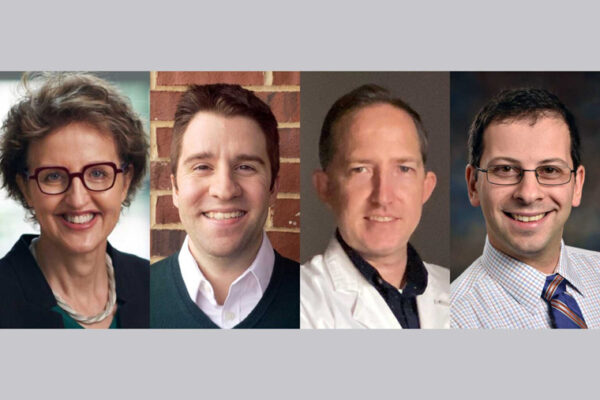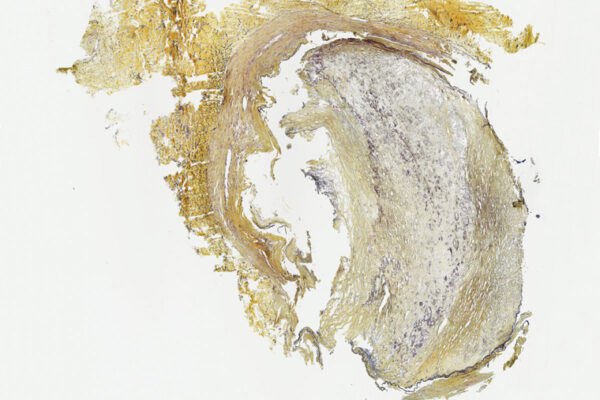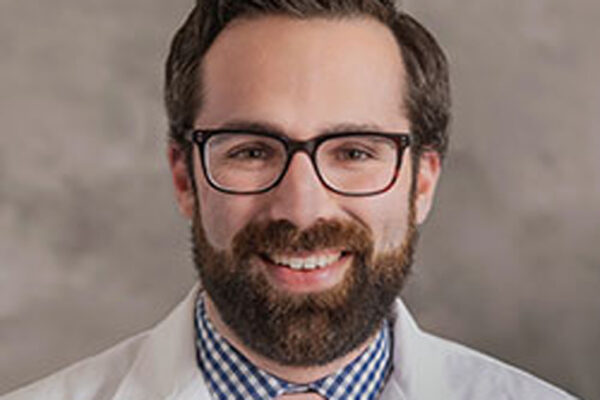NIH awards 4 medical school scientists prestigious ‘high-risk, high-reward’ grants
Four researchers at Washington University School of Medicine have been awarded “high-risk, high-reward” grants from the National Institutes of Health (NIH). The grant program aims to inspire scientific discovery by providing support for highly innovative research. The grant recipients are (from left) Linda J. Richards; Brian J. Laidlaw, Anthony W. Orvedahl and Leonid Shmuylovich.
Holehouse receives NSF grant
Alex Holehouse, assistant professor of biochemistry and molecular biophysics at the School of Medicine, along with researchers at the University of California, Merced, and the University of Wyoming, received a four-year $992,485 grant from the National Science Foundation through the new “Integrative Research in Biology” program.
Schmidt recognized for contributions to neuropathology
Robert Schmidt, MD, PhD, professor of pathology and immunology at Washington University School of Medicine, has received the Meritorious Contributions to Neuropathology Award from the American Association of Neuropathologists.
Blood marker could help ID those at risk of debilitating peripheral artery disease
Washington University School of Medicine researchers have found a protein in the blood that could be measured to identify patients with limb-threatening ischemia — a condition in which heavy plaque formation causes a severe narrowing of the arteries — earlier in the disease process.
Williams named director of hospital medicine division
Mark V. Williams, MD, a respected leader in hospital medicine, performance improvement and health-care delivery, has been named director of the Division of Hospital Medicine in the Department of Medicine at Washington University School of Medicine. His appointment takes effect Oct. 1.
Farnsworth honored for excellence in clinical chemistry research
Christopher Farnsworth, assistant professor of pathology and immunology at Washington University School of Medicine, has received the 2021 George Grannis Award for Excellence in Research and Scientific Publication from the American Association for Clinical Chemistry.
Garcia receives NIH grants
Benjamin Garcia, head of biochemistry and molecular biophysics at the School of Medicine, along with Matthew D. Weitzman, professor at the University of Pennsylvania, received a five-year $2.9 million renewal grant from the National Institute of Allergy and Infectious Diseases of the National Institutes of Health (NIH) for their research on epitranscriptomic mechanisms.
Radiation therapy reprograms heart muscle cells to younger state
Radiation therapy for ventricular tachycardia — a life-threatening irregular heart rhythm — appears to work by reverting heart muscle cells to a younger state, reducing the irregular rhythms, according to a new study from Washington University School of Medicine.
Chen receives Stein Innovation Award
Shiming Chen, professor of ophthalmology at the School of Medicine, has received a 2021 Stein Innovation Award from Research to Prevent Blindness.
Allen Sclaroff, professor of clinical otolaryngology, 75
Allen Sclaroff, DDS, professor of clinical otolaryngology at Washington University School of Medicine, died Aug. 18 in St. Louis, following complications of multiple myeloma. He was 75.
Older Stories






